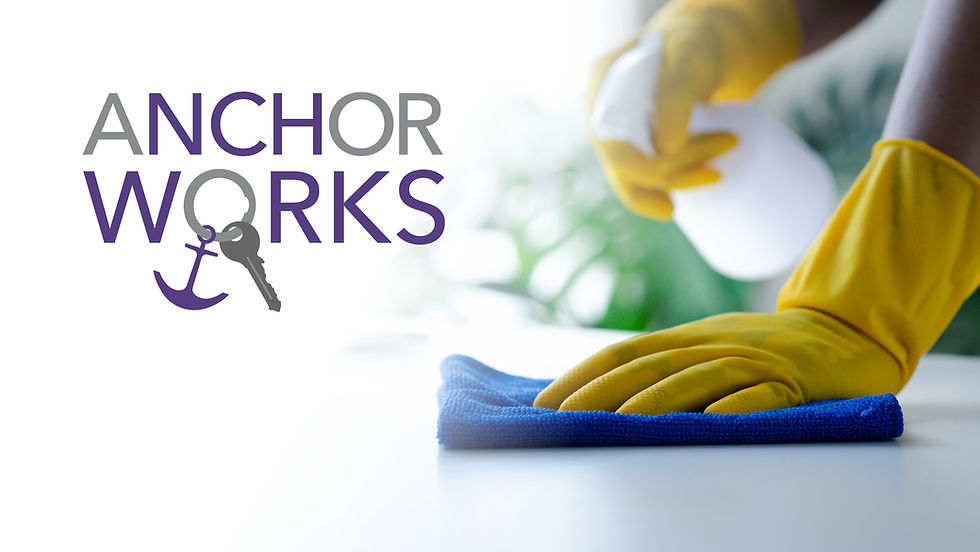PRIDE and Place
- Laurie Ingram

- Jun 9, 2025
- 2 min read

At ANCHOR, we believe housing is more than shelter. It is dignity, safety, and opportunity. This PRIDE Month, we are reaffirming our commitment to LGBTQIA+ housing equity. The affordable housing crisis is disproportionately harming LGBTQIA+ people across North Carolina, including the diverse communities of the Carolina Core.
LGBTQ youth are 120% more likely to experience homelessness than their non-LGBTQ peers. Rejection by family, aging out of foster care, and violence or abuse at home are frequent drivers of this crisis. Once unhoused, LGBTQ youth face heightened risks of victimization, trafficking, and poor or declining health outcomes.
In a national study, 28% of LGBTQ youth reported experiencing homelessness or unstable housing at some point in their lives. The lack of affirming shelter options across many regions, including parts of the Carolina Core, leaves many with nowhere to go.
According to a 2019 report by the Williams Institute and the Campaign for Southern Equality, LGBTQ adults in North Carolina face significantly higher rates of economic hardship than non-LGBTQ adults:
| LGBTQ Adults | Non-LGBTQ Adults |
Food insecurity | 29% | 16% |
Unemployment | 8% | 6% |
Lack of health insurance | 21% | 14% |
These economic disparities directly contribute to housing instability. LGBTQ people are more likely to experience poverty, rely on public assistance, and lack emergency savings. In high-rent areas like Winston-Salem, Greensboro, and surrounding counties, the margin between housing and homelessness is dangerously thin for many queer and trans households.
North Carolina currently lacks a statewide law protecting individuals from housing discrimination based on sexual orientation or gender identity. While several municipalities — including Greensboro, Charlotte, Raleigh, and Winston-Salem — have adopted local nondiscrimination ordinances, the state remains a patchwork of protections.
As of 2024, only 8% of North Carolina’s population lives in a jurisdiction with full protections (in housing, employment, and public accommodations). An additional 23% live under partial protections. That leaves roughly 69% of residents without any local legal safeguards against LGBTQ-based housing discrimination.
The Trevor Project reports that LGBTQ youth who experience homelessness are significantly more likely to attempt suicide, suffer from depression, or face substance use disorders. Access to stable, affirming housing reduces these risks dramatically. For LGBTQ people of all ages, housing is directly tied to mental and physical well-being, workforce participation, and long-term health outcomes.
At ANCHOR, we are actively building inclusive communities where everyone belongs. Our commitment to LGBTQIA+ housing justice includes:
Developing and managing affordable housing that is inclusive of LGBTQ residents and families
Working with partners to support LGBTQ youth at risk of homelessness, including wraparound services
Advocating for fair housing laws and expanded nondiscrimination protections statewide
Investing in trauma-informed housing models that prioritize safety, mental health, and dignity
As we celebrate PRIDE, we ask for your support to:
Support nondiscrimination ordinances in your local government
Invest in LGBTQ-affirming housing and services
Uplift stories of queer resilience and housing justice in the Carolinas
Advance legislation that centers equity, stability, and access for all
Housing is a human right. PRIDE is a celebration of visibility, community, and resistance. At their intersection lies the urgent work of ensuring every LGBTQIA+ person in North Carolina has a safe place to call home.
Let us work together to ensure that PRIDE includes a place to call home for everyone. Every day.



